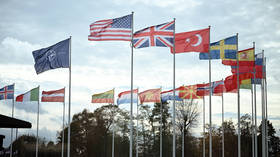Child porn industry spreading in Southeast Asia as internet access grows

The spread of internet use in Southeast Asia is fuelling the creation and spread of child exploitation – and experts are warning that children are being coerced into creating the material themselves.
Internet availability across Southeast Asia currently sits at about 50 percent, according to a recent study. However, in the Philippines and Thailand, countries where sexual abuse is a significant problem, the rate reaches 58 percent and 67 percent respectively, Reuters reports.
'This is child protection': Sex abuse by Asian gangs unreported because informers fear being called racist – MP https://t.co/E57CREapxe
— RT (@RT_com) August 11, 2017
Jon Rouse of Taskforce Argos, an Australian police unit that targets online child abuse networks, said that the problem of child porn is only going to get bigger.
Rouse said that a recent week-long investigation in Bangkok revealed that more than 3,600 individual internet addresses had been identified as sharing child exploitation material.
“The big problem we’re seeing at the moment is the proliferation of self-produced material by children. It’s just killing us,” he said, while discussing children livestreaming themselves at the instigation of a sex offender or a friend. “That material then gets used by sex offenders against them.”
Rouse’s comments are corroborated by a newly released report from Plan International Philippines titled ‘Children and the Sex Trade in the Digital Age’.
Speaking at the launch of the report on Tuesday, the aid organization’s director, Dennis O’Brien, said that “access to (the) Internet and technology makes the children more vulnerable” to exploitation and abuse, PhilStar reports.
“Commercial and online sexual exploitation of children has become a social epidemic in the Philippines… We have easy, inexpensive Internet access.”
O'Brien: we advocate to increase the minimum age of sexual consent from 12 to 15 years.
— Plan Philippines (@PlanPhilippines) October 17, 2017
O’Brien singled out poverty as the main driver for children entering into the sex industry. He pointed out, however, that proficiency in the English language “has also been contributing to the problem.”
“English is widely spoken in the Philippines so the children are able to meet demands all over the world. The stigma and fear associated with sexual exploitation are also there. These factors are coming together to create a perfect storm,” he said.
He also criticized the legal age of sexual consent in the Philippines which, at 12 years old, is the youngest in Asia. There is lobbying for that to be increased to 15, which would bring it into line with Thailand.













